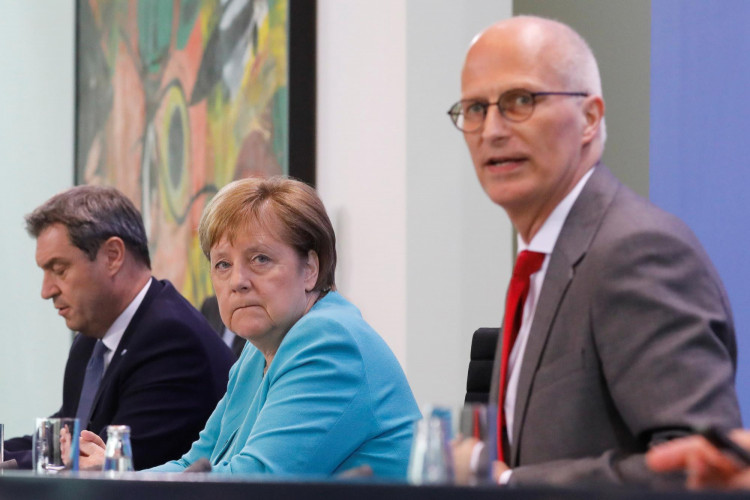According to the Robert Koch Institute for Public Health on Saturday, the replication rate of the novel coronavirus in Germany has risen to 1.79 after a series of localized outbreaks.
The number, a sharp increase from Friday's 1.06, is a setback for the most populous country in the European Union, which has fared better in the pandemic compared to many European peers largely because of early testing and social distancing measures.
The Institute attributed the increase to a number of local outbreaks that have been seen in areas like meat packing facilities, logistics hubs, and refugee shelters. Church services and family events were also connected to the outbreaks.
A reproduction rate of 1.79 indicates that 100 people who have become sick with the coronavirus infect 179 other people on average. A rate of less than one is required to slowly curb the virus.
A meat processing facility in Germany's western region of North Rhine-Westphalia reported a new outbreak earlier this week, when 400 personnel tested positive. On Friday, that figure had grown to 803 and the number now has climbed to 1,029, health authorities said.
The premier of North Rhine-Westphalia warned Friday that the region faces the threat of a another lockdown in the midst of a new coronavirus outbreak at the slaughterhouse.
According to RKI, since case figures in the country are generally low, "these outbreaks have a relatively strong impact on the value of the reproduction number," Neil Murphy of The Mirror, reported.
Toennies, one of Germany's largest meat processing companies, stated that it had ceased slaughtering on Wednesday and was closing down the facility in phases. Over 1,000 staff were tested and a total of 657 workers tested positive for the coronavirus, DW News said.
China on Thursday banned all meat products from the slaughterhouse, after German authorities alerted the plant to the cluster of outbreaks and considering the ongoing doubts sparked by the fresh outbreak in a food market in Beijing that has triggered fears among the locals that fresh meat could be the source of the new local infections.
Chancellor Angela Merkel had favored keeping lockdown measures for longer, but Germany had eventually loosened its restrictions after pressure from regional leaders.
Aside from meat processor Toennies, an abattoir in the northern state of Schleswig-Holstein also tallied more than 100 new cases while another facility in Bavaria registered about 60 cases. Over the weekend, a fresh outbreak has emerged from a slaughterhouse in Lower Saxony, with around 92 workers testing positive.






